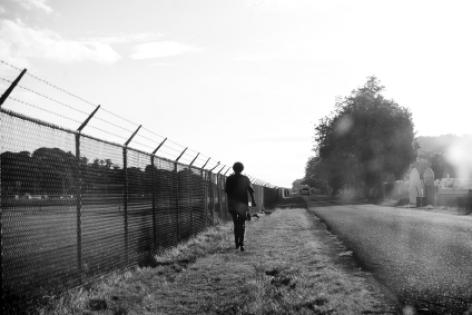A little over two years ago, 24-year-old Daniel O’Keeffe walked out of his family’s home carrying a mobile phone but leaving behind his wallet and his keys. Since then his parents, sisters and girlfriend have not seen or heard from him – although he is believed to have visited a medical clinic in Ipswich, just outside of Brisbane in late 2011.
Sadly, Dan is one of an estimated 35,000 people who are reported missing in Australia each year. Although the majority of these people are located within a short period of time, the impact on those who are left behind, and the vulnerabilities experienced by those whilst they are away from their support networks, are both traumatic and challenging.
“It is estimated that when someone goes missing, at least 12 others are directly affected by the disappearance,” says Loren O’Keeffe, Daniel’s sister and convenor of the Missing Persons Advocacy Network (MPAN).
Loren established MPAN as a means of creating awareness for missing persons and to offer practical support for those affected by the disappearance of a loved one. She has also been tireless in continuing to look for her younger brother, with her efforts coordinated through a social media campaign known as Dan Come Home.
“Missing persons is a major community issue and yet we don’t talk about it,” she says.
“As was the case with my brother, the majority of missing persons cases relate to mental illness.”
Learning to recognise the warning signs in loved ones is the theme of this year’s National Missing Persons Week which starts today.
“We can bring these issues into the open. We need to reconnect our community.”
The Australian Federal Police (AFP) say a missing person is defined as someone whose whereabouts are unknown and where there are serious concerns for their wellbeing. Having a relative or friend go missing can affect every Australian regardless of age, gender, race, ethnicity or socio-economic group.
This year, the AFP’s National Missing Persons Coordination Centre is working in partnership with a number of mental health organisations to inform the Australian community of the link between mental health and missing persons with a view to alleviating the trauma experienced by those people living with a mental illness, their families and friends and to reduce the incidence of people going missing due to mental health issues.
Experts say these signs may indicate someone you know is suffering from a mental health issue and may be at risk of going missing. Has the person you know:
- been talking about feeling very down and nothing can help?
- often been tearful or overly sensitive?
- lost interest in day-to-day activities?
- stopped reaching out to family and friends and isolated themselves?
Actress Deborah Mailman is supporting the work of MPAN through this video. The central message is to encourage ‘people power’ to get involved in the issue of missing persons.
“We’re talking half a million people every year, suffering this horrible loss,” says Deborah.
This week is National Missing Persons Week.
- If you or someone you know needs immediate help, call Lifeline on 13 11 14.
- To find out more about Missing Persons, please visit MissingPersons.gov.au or call 1800 000 634.
- If you would like to know more about, or support the work of, MPAN visit MPAN.com.au.



















__small.png)










